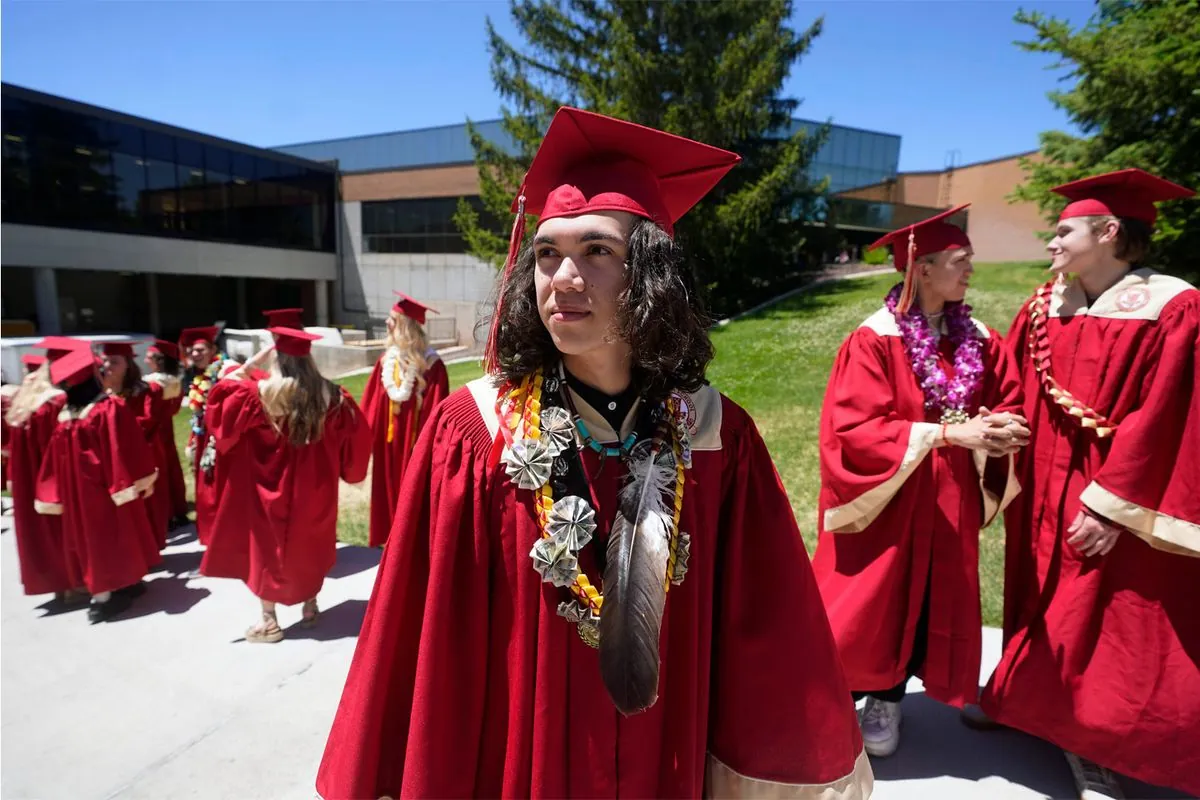Race-Based Scholarships Vanish in Wake of Supreme Court Ruling
Universities grapple with the aftermath of the affirmative action ban, leading to the cancellation of race-conscious scholarships. Students and experts express concerns about potential impacts on diversity and educational equity.

In the aftermath of the Supreme Court's decision to ban affirmative action in June 2023, universities across the United States have been grappling with its implications. One significant consequence has been the elimination of race-conscious scholarships, which have long been instrumental in providing educational opportunities to underrepresented students.
Elijah Brown, a graduate of the University of Missouri, exemplifies the transformative power of such scholarships. Growing up in a predominantly Black neighborhood in St. Louis, Brown faced numerous challenges, including financial hardship and racial discrimination. The George C. Brooks scholarship, designed to support underrepresented students, enabled him to attend the University of Missouri, where he excelled academically.
"It changed my life. It really did. I worked so hard. I was relentless with it, because I felt like I had something to prove."
However, the landscape of higher education has shifted dramatically since Brown's graduation in 2020. The Supreme Court's ruling, while not explicitly addressing financial aid, has prompted many universities to reevaluate their scholarship programs. At least 13 of the country's 50 flagship public universities have altered or eliminated scholarships that considered race as a factor.
The impact of these changes is already becoming apparent. At the University of Missouri, the percentage of Black incoming freshmen has decreased from 8% five years ago to just 4% in the fall of 2023. This trend raises concerns about the potential widening of educational disparities.

The decision to cancel race-conscious scholarships has not been uniform across all institutions. While some universities have preemptively made changes to avoid potential legal challenges, others have chosen to maintain their existing programs. For instance, the University of New Mexico has decided to keep its National Recognition scholarship, which benefits high-performing Indigenous, Black, and Hispanic students.
Diego Ruiz, a recipient of this scholarship at the University of New Mexico, highlights its significance:
"I'm just really interested in trying to give back to the community that raised me. I'm super interested in battling the disparities that we have in New Mexico, because it's just so vast and so underserved in terms of our communities."
The elimination of race-conscious scholarships has sparked debates about educational equity and access. Critics argue that relying solely on merit-based criteria for scholarships may disadvantage students from underrepresented groups, who often face systemic barriers to academic achievement.
As universities navigate this new landscape, the long-term implications of these changes remain uncertain. However, the stories of students like Brown, Ruiz, and Eyram Gbeddy, who benefited from race-conscious scholarships, underscore the transformative impact these programs have had on individual lives and communities.
The ongoing discussion surrounding race-conscious scholarships reflects broader societal debates about equity, diversity, and the role of higher education in addressing historical inequalities. As institutions continue to adapt to the new legal framework, the challenge of maintaining diverse and inclusive campuses while complying with the Supreme Court's ruling remains at the forefront of higher education policy.


































